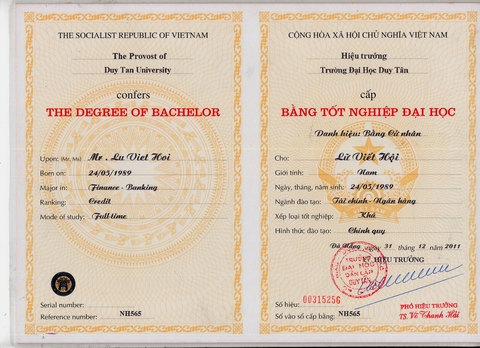
The BA thesis is a coherent, professional discussion of a subject area related to English language studies. It consists of a written article that is read and marked by an independent tutor, and presented for evaluation by a faculty member. The thesis is worth 10 ECTS. It must tie in with at least one course taken during dissertation help and third years.
Bachelor’s thesis
A Bachelor’s thesis is an extended academic paper in which the student uses English language knowledge to address a specific professional issue. This paper may build on an earlier paper written as part of a course or may be the result of independent research. The student is required to submit a proposal at the end of the third year and identify a faculty advisor.
Bachelor’s thesis topics may be focused on one or more authors or periods of literature. They may include works from the Renaissance, modern times, and the Middle Ages. They may also examine topics relating to the arts and humanities.
The topic of a Bachelor’s thesis may also be interdisciplinary. For example, a student can write about American regionalist literature. Other possible topics include sectional divides, nationalism, local color, dialect fiction, and the conditions of publication. In addition, students may investigate the role of regionalism in literary representations.
English language studies
The Bachelor’s thesis is a research-based, theoretical discussion of an issue pertaining to English language studies. The topic can range from a theoretical argument to an empirical study. The topic may be related to teaching, research, or practice.
In the late eighteenth and early nineteenth centuries, English literature was dominated by Dickens and Thackeray. No other writer represented the time as thoroughly. During the course, students will study the works of these writers within the context of nineteenth-century English society.
The Bachelor’s thesis should explore dissertation writing services, the development of literature in the nineteenth century. While many consider Yeats a modernist, he was an Irish writer. His concept of national and ethnic poetry influenced writers such as Kavanagh and Heaney. The study also includes several “post-structural” critical schools.
The course prepares English language teachers for teaching composition to students of other languages. The course includes an examination of the theoretical foundations of language acquisition, as well as the writing process. In addition, students examine various forms of evaluation of student writing.
The thesis may focus on a particular period of time, author, theme, or structure of a literary work. For example, an English language literature thesis may focus on F. Scott Fitzgerald and other expatriate writers. These writers’ works reflect the changes in communication and sensibility that occurred during the decade.
It is read and marked by an independent tutor
An independent tutor can help you understand concepts from a lecture but can’t provide advice on how to prepare for tests. You are expected to prepare for out-of-class tests and exams yourself. Your tutor must adhere to the Honor Code and never contact your professor, TA, academic adviser, or parent.
It is submitted to a faculty member for evaluation
Before the thesis committee meets to evaluate a student’s thesis, the student must register with the Graduate Group Office. The student must contact the Graduate Group Office at least once a week to provide a progress report (two or three pages). The committee must vote on the thesis, and the thesis chair must write a brief summary of the committee’s decisions. The thesis committee chair should communicate with the student regarding concerns or questions regarding the thesis and be the student’s primary advocate.
After the thesis committee members have evaluated the thesis, the candidate may be required to submit it for revision. Revisions may include correction of errors, clarification of concepts, or adding new sections. These revisions must be approved by the thesis supervisor, and they must be approved by all examiners. If the revisions are minor, the candidate may be able to submit the revised thesis to all examiners for evaluation.
English language discussion
The final thesis or dissertation must have a committee page. It lists the names of the committee members, but does not contain their signatures. The names listed on this page must match the names on the committee member’s form (eTD). The committee page must appear before the Abstract. The committee page should be properly formatted.
Before submitting a thesis for evaluation, the student must first obtain approval from the Committee on the Use of Human Subjects (CUHS) of Harvard University. This approval is necessary for any thesis that involves human subjects. The committee reviews the thesis prior to its submission to a faculty member.
In addition to this approval, the thesis must follow the formatting guidelines of the Graduate School. The dissertation must have a margin of one inch on all sides. However, a wider left margin may be appropriate for binding purposes. The document should be numbered. The thesis may contain appendices. These must be numbered as part of the text.
When a thesis is submitted for evaluation, the faculty member will determine whether it is worthy of honors. If the thesis meets these standards, the faculty member will choose a second reader to confirm the thesis’s honors. Once the committee approves the thesis, the faculty member will route the completed DocuSign document to the Anthropology Undergraduate Advisor for processing the senior comprehensive requirement.
It is evaluated by an oral defense
An oral defense is an evaluation process used to determine the academic merit of a thesis. It consists of an oral presentation and evaluation of the written thesis. It results in a Grade of Pass or Fail, which will appear on the student’s transcript. The examining committee usually meets four weeks before the proposed defense date.
A student may have some problems with the written document prior to the oral defense. In such a case, the student must notify the defense committee chair. If the written document has major flaws, the oral defense can be postponed. For example, major problems may involve insufficient background, improper statistical methods, or evidence of plagiarism. After the exam, the student must meet with his or her advisor for a debriefing and discuss revisions to the thesis.
If the student does not pass the oral defense, there are several outcomes. In most cases, the examiner will recommend minor revisions to the institution. In other cases, the dissertation writers may ask for more extensive work.
The examining committee consists of the candidate’s supervisory committee and an external examiner. At least two members of the committee must be members of the University’s Graduate Program Director and be knowledgeable about the candidate’s topic. A third member of the committee must be an expert in the field of the thesis. The examiner must have at least a Masters or Doctoral degree, and a Teaching/Advisory SGPS membership. Additional members of the committee can be appointed by the student’s thesis mentor at their discretion.
The examining committee will evaluate the thesis in four phases. First, the committee will assess the overall merit of the dissertation. In addition to the quality of the writing, the committee will consider the scope of the student’s contribution to the field. Second, the committee will consider the comments of the External Examiner and other members of the Examining Committee. Finally, the committee will determine whether revisions should be necessary. It will decide if minor changes will be necessary or substantive revisions.
The evaluating committee will consider whether the written thesis is well-researched and properly presented. The committee will also consider whether the student has learned during the process. It will also consider whether the student has applied critical thinking, initiative, and responsibility.



